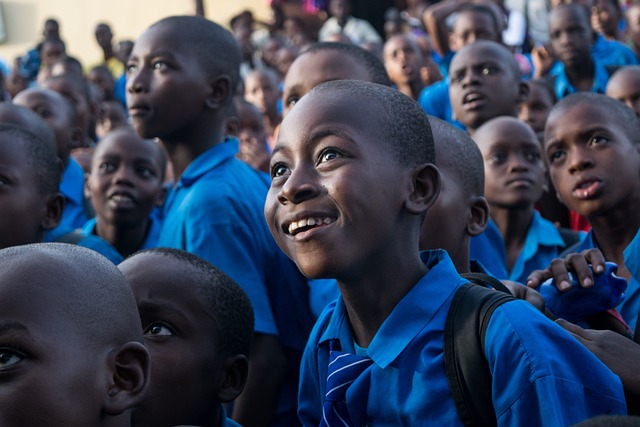Vaccines play a crucial role in protecting children from a variety of serious and potentially life-threatening diseases. Immunization is not only a personal health choice but also a responsibility towards community well-being. This article aims to shed light on the importance of vaccines for children, the diseases they prevent, and the safety and benefits associated with childhood vaccination.
- The Power of Immunization:
Vaccines are medical interventions designed to stimulate the immune system, preparing it to recognize and fight specific pathogens. For children, vaccines are particularly important as they provide protection during a period when their immune systems are still developing. - Childhood Vaccination Schedule:
The Centers for Disease Control and Prevention (CDC) and the World Health Organization (WHO) and the Nigerian Program on Immunization(NPI) recommend a specific schedule for childhood vaccinations. This schedule includes vaccines for diseases such as:
1. Measles, Mumps, and Rubella (MMR):
The MMR vaccine protects against three highly contagious viral infections. Measles can cause high fever and a characteristic rash; mumps can lead to swollen salivary glands and fever, and rubella can be particularly harmful to pregnant women, causing birth defects.
2. Polio:
The polio vaccine safeguards against poliovirus, a highly contagious virus that can lead to paralysis and, in severe cases, death. Through global vaccination efforts, polio has been nearly eradicated.
3. Diphtheria, Tetanus, and Pertussis (DTaP):
DTaP provides immunity against diphtheria, a respiratory disease; tetanus, caused by bacteria entering wounds; and pertussis (whooping cough), a highly contagious respiratory infection. These diseases can be severe, especially in infants.
4. Hepatitis B:
Hepatitis B vaccine protects against a virus that attacks the liver. Chronic hepatitis B infection can lead to liver cirrhosis and liver cancer. Vaccination is typically administered in a series of shots.
5. Haemophilus influenzae type b (Hib):
The Hib vaccine prevents infections caused by the Haemophilus influenzae type b bacteria, including pneumonia and meningitis. It is crucial for young children as Hib can cause severe illness.
6. Varicella (Chickenpox):
The chickenpox vaccine prevents the varicella-zoster virus, which causes itchy skin rashes. Vaccination has significantly reduced the incidence of chickenpox and its complications.
7. Rotavirus:
Rotavirus is a leading cause of severe diarrhea in infants and young children. The rotavirus vaccine helps prevent this common and highly contagious viral infection.
8. Meningococcal:
The meningococcal vaccine protects against bacteria that can cause meningitis and bloodstream infections. Meningococcal diseases can progress rapidly and have serious consequences.
9. Influenza:
The influenza (flu) vaccine is an annual vaccination to protect against influenza viruses. Influenza can cause severe respiratory illness, especially in young children, the elderly, and those with weakened immune systems.
10. Human Papillomavirus (HPV):
The HPV vaccine protects against certain strains of the human papillomavirus, which can lead to various cancers, including cervical cancer. Vaccination is recommended for pre-teens and teenagers.
11. Pneumococcal Diseases:
The pneumococcal vaccine guards against infections caused by the bacterium Streptococcus pneumoniae. It helps prevent pneumonia, meningitis, and other serious illnesses, particularly in young children and older adults.
Yellow Fever:
Overview: Yellow fever is a viral disease transmitted by mosquitoes in tropical areas of Africa and South America. The virus can cause severe illness, including high fever, jaundice, and bleeding. In some cases, it can be fatal.
Vaccination: A highly effective yellow fever vaccine is available. International travelers visiting regions where yellow fever is endemic may be required to get vaccinated to enter certain countries. The vaccine provides long-lasting immunity and is a crucial preventive measure.
BCG (Bacillus Calmette-Guérin):
BCG is a vaccine primarily used to prevent tuberculosis (TB). It is named after the French scientists who developed it, Albert Calmette and Camille Guérin. BCG vaccination is often given to infants in countries with a high prevalence of TB like Nigeria.
Purpose: BCG does not provide complete protection against TB but is effective in preventing severe forms of the disease, particularly in children. It also offers some protection against leprosy.
Administration: BCG is typically administered shortly after birth, and a small, painless bump at the injection site usually appears, indicating a successful vaccination.
- Benefits of Childhood Vaccination:
Disease Prevention: Vaccines protect children from serious illnesses, reducing the risk of complications.
Community Immunity: When a significant portion of the population is immunized, it creates herd immunity, indirectly protecting those who cannot be vaccinated. - Safety and Side Effects:
Vaccines undergo rigorous testing for safety before they are approved for use. Common side effects, such as mild fever or soreness at the injection site, are generally short-lived. Serious side effects are extremely rare. - Debunking Vaccination Myths:
Infertility Myth: Numerous studies have debunked the myth that vaccines cause infertility. There is no scientific evidence supporting this claim.
Weakening the Immune System: Vaccines actually strengthen the immune system by training it to recognize and combat specific pathogens. - Global Impact:
Childhood vaccinations have had a profound global impact. They have led to the eradication of diseases like smallpox and significantly reduced the incidence of others. - Importance of Timely Vaccination:
Following the recommended vaccination schedule is crucial. Delaying or skipping vaccines may leave children vulnerable to preventable diseases.
Conclusion:
Childhood vaccinations are a cornerstone of public health, providing protection against serious diseases and contributing to the overall well-being of individuals and communities. Parents, healthcare providers, and policymakers all play vital roles in ensuring that children receive the full benefit of immunization. By staying informed, addressing concerns, and following recommended vaccination schedules, we collectively contribute to a healthier and safer future for our children.
